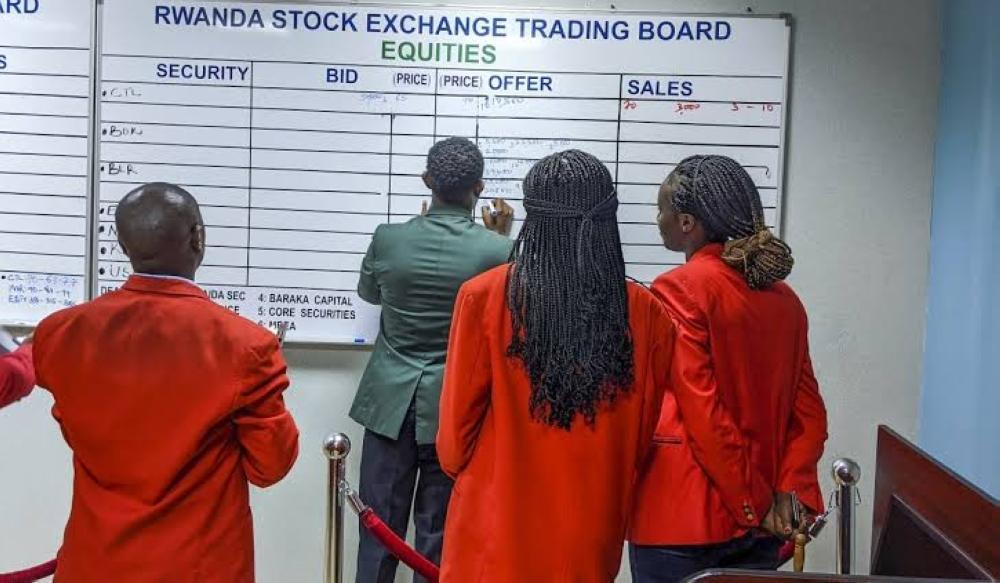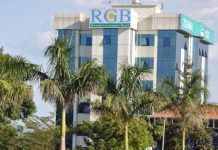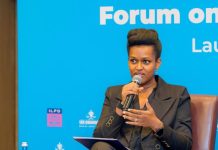Africa-Press – Rwanda. Rwanda is taking steps to introduce Islamic finance to its capital markets, as part of the efforts to unlock new investment flows, diversify products, and strengthen the country’s ambition to become a financial hub for the region.
Islamic finance on stock markets means investing in publicly traded companies while adhering to the ethical and moral principles of Sharia law.
Unlike conventional finance, Islamic finance prohibits interest (riba), speculation, and investment in industries deemed unethical, such as gambling.
The New Times understands that work is underway to develop a regulatory framework that will guide the introduction of Sharia-compliant instruments in Rwanda such as sukuk — Islamic bonds structured around profit-sharing rather than interest.
“We are keenly looking at developing Islamic finance products that are Sharia-compliant,” confirmed Pierre-Célestin Rwabukumba, the RSE chief executive.
“There is a lot of money in the Middle East and even within the region that can be put towards such projects, but they have to be Sharia-compliant. Rwanda is coming up with a framework, and we already have a draft that should be ready within the first quarter of 2026.”
Rwabukumba maintained that the goal is to widen the range of investment products on the local bourse, which has traditionally relied on what he called “plain vanilla” offerings such as equities and conventional bonds.
The introduction of Islamic finance, he added, would “pave the way for more inclusive and ethical instruments” and help attract investors who have stayed on the sidelines.
Capital Markets Authority (CMA) Chief Executive Thapelo Tsheole shared similar sentiments, describing Islamic finance as a proven concept that could establish a strong foothold in the country’s evolving market.
“Islamic finance is a good product, very successful in other countries. It presents a real opportunity for Rwanda, and as a market, we are aggressively pursuing it in the short term.”
This form of investing, a type of socially responsible investing, requires a rigorous screening process to ensure all activities and financial practices are considered “halal” (permissible) and avoid “haram” (forbidden) elements like interest, speculation, and unethical industries.
A young market looking to mature
Rwanda’s capital market remains one of Africa’s youngest, having launched in 2011.
Despite steady progress, market capitalisation stands at around 30 percent of GDP — well below levels seen in more mature exchanges like South Africa or Botswana, according to Rwabukumba.
While listings have grown consistently, with new products such as green bonds and real estate investment trusts beginning to take root, liquidity remains low and retail participation modest, with roughly 100,000 active investors.
Islamic finance, Rwabukumba argued, could help fill that gap by introducing instruments that appeal to a broader investor base, including those guided by faith-based principles or seeking socially responsible investments.
The bigger picture
Globally, Islamic finance has emerged as a trillion-dollar industry, concentrated in markets such as Malaysia, Saudi Arabia, and the UAE, where sukuk have become a key funding vehicle for infrastructure, housing, and renewable energy.
If realised, Rwabukumba believes that this could bring new capital into strategic sectors like green energy and real estate, aligning with the country’s sustainability agenda under the Kigali International Financial Center (KIFC).
He explained that Islamic finance promotes asset-backed transactions and shared risk between investors and borrowers, a structure that has been credited with fostering more stability in some markets during financial shocks.
The model, however, is not without precedent. In Africa, Nigeria, Senegal, and South Africa have all issued sovereign sukuk over the past decade to fund infrastructure and social projects, while Kenya and Uganda have developed draft regulations of their own.
A country like Malaysia has Islamic finance accounting for nearly 40 percent of total financial assets.
To get there, Rwabukumba said, Rwanda will need to ensure clear governance, credible Sharia oversight, and alignment between regulators, issuers, and investors.
“The frameworks are there; the people are there. Most of the time, investors are just looking for the right products. When you bring something new to the market, people take it,” he reiterated.
Rwanda will host the upcoming ASEA 2025 annual conference, themed “Adapting to Global Market Shifts: Strategies for Resilience and Growth for African Markets of the Future,” from November 26 through 28.
The forum is expected to draw conversations on Islamic finance, strengthening capital markets as a buffer against global shocks, as well as embedding ESG principles for sustainable and inclusive growth.
For More News And Analysis About Rwanda Follow Africa-Press






